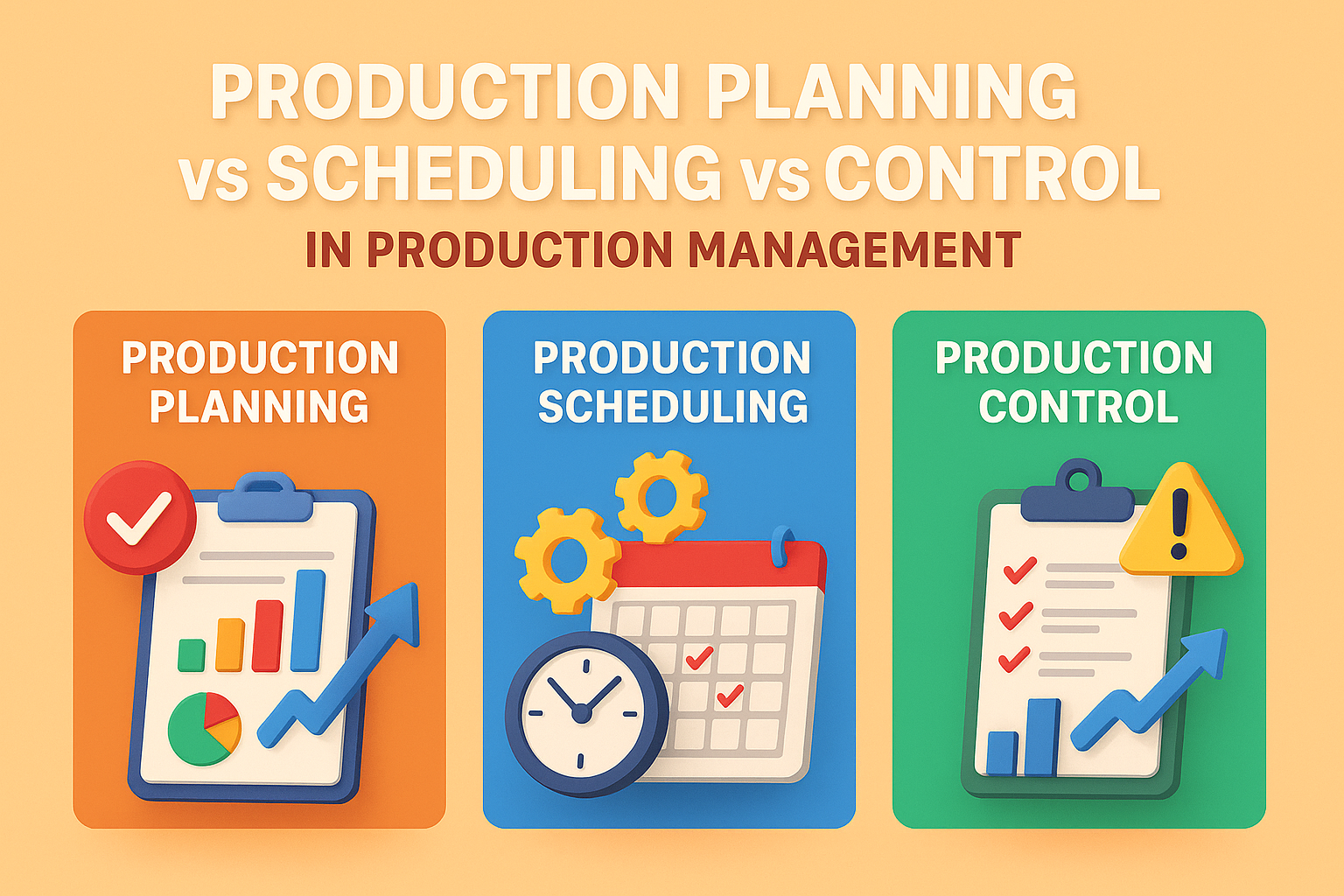📌 Production Planning vs Scheduling vs Control in Production Management
In modern production management, three critical functions ensure smooth operations: Planning, Scheduling, and Control.
Although they are interconnected, each function has its own purpose, timing, and focus.
Understanding the differences can help businesses reduce downtime, optimize resources, and improve overall efficiency.
🔹 What is Production Planning?
Production Planning is the strategic step in manufacturing. It focuses on deciding what, when, and how much to produce.
Key Points:
- Based on demand forecasts, capacity, and available resources
- Defines the overall production goals
- Helps in inventory management and resource allocation
- Ensures the organization is ready before production begins
📌 Example: A car manufacturer plans to produce 5,000 units of a new model in the next quarter, considering market demand and plant capacity.
🔹 What is Production Scheduling?
Once the plan is ready, the next step is Production Scheduling, which is operational in nature.
Key Points:
- Assigns specific tasks, timelines, and resources
- Involves machines, workers, and shifts
- Converts the strategic plan into a detailed daily/weekly schedule
- Ensures smooth workflow and timely deliveries
📌 Example: Allocating assembly line workers in 3 shifts, assigning machines for body welding, and scheduling painting tasks to meet the production plan.
🔹 What is Production Control?
Even the best plans can face challenges like machine breakdowns, delays, or raw material shortages. This is where Production Control comes in.
Key Points:
- Monitors actual production against the planned schedule
- Identifies deviations, bottlenecks, and quality issues
- Takes corrective actions (rescheduling, shifting resources, adjusting targets)
- Ensures production goals are met despite disruptions
📌 Example: If a machine fails, production control reassigns tasks to another machine or adjusts the schedule to avoid delays.
🔹 Key Differences Between Planning, Scheduling, and Control
| Aspect | Production Planning | Production Scheduling | Production Control |
|---|---|---|---|
| Focus | What, when & how much to produce | How & when to execute tasks | Monitoring & corrective actions |
| Timing | Before production starts (strategic) | During execution (operational) | After/during execution (adjustments) |
| Goal | Resource & demand alignment | Smooth workflow & timely delivery | Efficiency & problem resolution |
| Nature | Forecast-based | Task-based | Result-based |
🔹 Why Are They Important in Production Management?
✔️ Minimize downtime
✔️ Optimize workforce & machine utilization
✔️ Ensure on-time delivery
✔️ Improve product quality
✔️ Increase customer satisfaction
🏭 Conclusion
Production Planning, Scheduling, and Control are three pillars of production management.
- Planning provides the roadmap
- Scheduling ensures execution
- Control guarantees results
Organizations that balance all three can achieve higher productivity, lower costs, and competitive advantage in today’s market.
👉 Did this article help you understand the difference between planning, scheduling, and control?
Share your thoughts in the comments!
